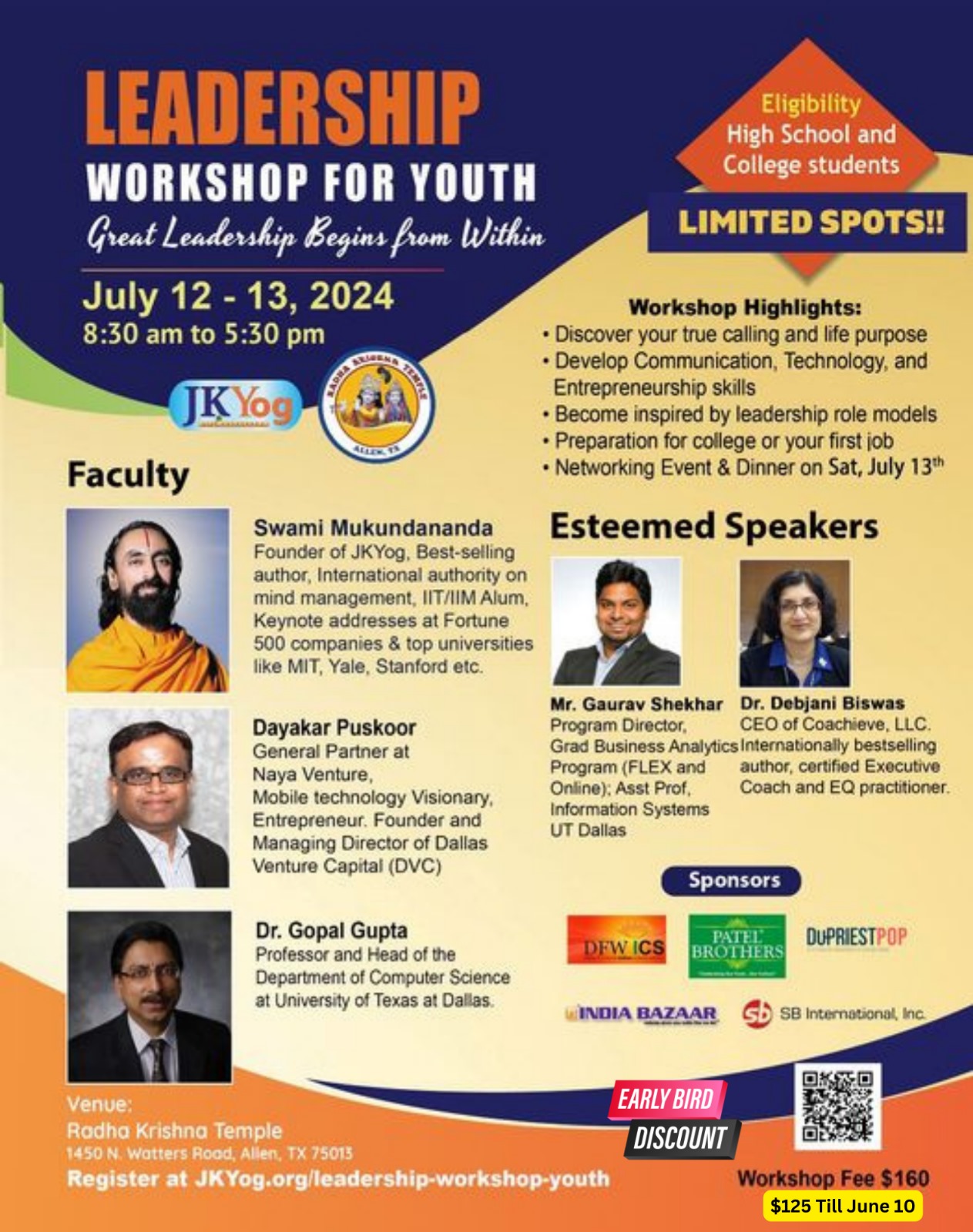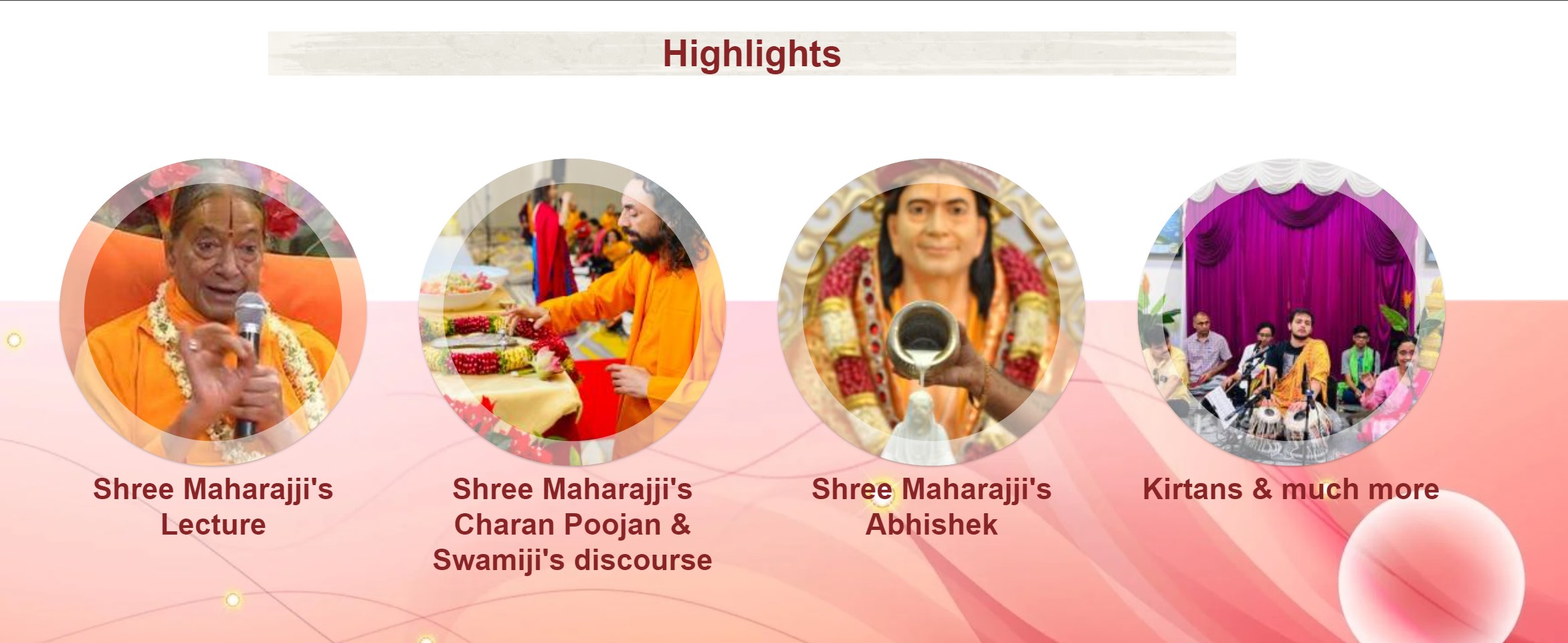Importance of Humbleness for Spiritual Growth

Importance of Humbleness for Spiritual Growth
 Quote
Quote
विद्याविनयसम्पन्ने ब्राह्मणे गवि हस्तिनि |
शुनि चैव श्वपाके च पण्डिता: समदर्शिन: || 18||
vidya-vinaya-sampanne brahmane gavi hastini
shuni chaiva shva-pake cha panditah sama-darshinah
The truly learned, with the eyes of divine knowledge, see with equal vision a Brahmin, a cow, an elephant, a dog, and a dog-eater.
 From the Editor's Desk
From the Editor's Desk
Humility, or humbleness, is the bedrock of any spiritual journey. It acts as a catalyst for personal transformation and deepens our connection with the divine. In this issue, we describe the transformative power of humbleness and ways to cultivate humility.
 Bhakti Ras
Bhakti RasImportance of Humbleness for Spiritual Growth
In the journey of spiritual growth, humbleness is a foundation upon which all other virtues are built. This profound quality aligns one’s life with higher spiritual principles and attracts divine grace. Understanding the significance of humility in spiritual practice is essential for anyone aspiring to advance on the path of divine love for God. But what exactly makes humility so fundamental?
The Transformative Power of a Humble Heart
At its core humility is about recognizing our true place in the vast expanse of the universe. It involves acknowledging our limitations and insufficiencies, which fosters a sincere and earnest approach to spiritual practice. When we accept that we are not the doers and there is a higher force at work, we become more receptive to spiritual teachings and divine intervention. Humbleness requires us to let go of the ego that acts as a barrier between ourselves and our spiritual goals. By letting go of pride and arrogance, we make room for wisdom. Pride distorts our perception and makes us believe in our self-sufficiency, disconnecting us from the divine. Humility helps to dissolve this ego and create space for genuine spiritual growth.
Why do humble individuals tend to progress more swiftly on the spiritual path? The answer lies in the transformative power of humility.
Openness to Learning. Humble people possess a willingness to learn and grow. They do not cling to their beliefs or consider themselves superior to others. This openness makes them more adaptable and receptive to spiritual life lessons. They seek guidance and are willing to follow it diligently. This is what accelerates their spiritual progress..
Focus on the Divine Relationship. Humility fosters a deeper and more authentic relationship with the divine. God and Guru are more inclined to bestow grace upon a soul that approaches them with humility. The humble heart does not seek recognition or rewards but yearns for a genuine connection with the divine. This sincere devotion is often met with divine grace, which propels the seeker forward on their spiritual journey.
Inner Peace and Contentment. A humble attitude brings inner peace and contentment, another essential virtue for spiritual growth. Humble individuals are less likely to be disturbed by external circumstances because they accept life’s ups and downs with equanimity. This inner tranquility creates a conducive environment for spiritual practices like meditation and prayer, leading to deeper states of consciousness.
Inner Peace and Contentment. A humble attitude brings inner peace and contentment, another essential virtue for spiritual growth. Humble individuals are less likely to be disturbed by external circumstances because they accept life’s ups and downs with equanimity. This inner tranquility creates a conducive environment for spiritual practices like meditation and prayer, leading to deeper states of consciousness.
Practical Steps to Cultivate Humility
Here are some practical steps to develop humbleness.
Self-Reflection and Awareness. Self-reflection is the first step toward cultivating humility. We must regularly examine our thoughts, actions, and intentions. Are they driven by ego or by a genuine desire to grow spiritually? Awareness of one's egoistic tendencies is the first step in overcoming the mental afflictions that obstruct spiritual growth.
Practice Gratitude. Gratitude is a powerful antidote to pride. By regularly acknowledging and appreciating the blessings in our lives, we can shift the focus from self-seeking desires to the desire to please God and Guru. Gratitude helps us to be aware of and acknowledge the contributions of the divine and others in our lives, which fosters a humble attitude.
Selfless Service. Engaging in selfless service is a practical way to develop humility. When you serve others without expecting anything in return, you learn to put others’ needs before your own. This act of selflessness helps to diminish the ego and nurture a humble spirit.
Accept Criticism Gracefully. Learning to accept criticism with grace is a hallmark of humility. Instead of reacting defensively, view criticism as an opportunity for growth. Accepting criticism helps in personal development and strengthens the resolve to remain humble in the face of adversity.
Meditate on Humility. Meditation is a powerful tool for internal transformation. Regularly meditating on the virtues of humility can help to ingrain these qualities within our subconscious mind. We may visualize ourselves as humble beings, connected deeply with the divine and detached from egoistic tendencies.
Seek Divine Assistance. Recognize that true humility comes with divine assistance. Regularly pray and seek guidance from God and Guru to help you cultivate a humble heart. Surrendering to a higher power can significantly aid in the dissolution of ego and the development of humbleness.
In conclusion, a humble attitude involves not taking our successes, failures, or desires too seriously. It is about accepting and making the effort to overcome one’s shortcomings gracefully. It is a character strength rooted in an understanding of our place in the larger order of things in the universe.
 Bal-Mukund: Playground for Vedic Wisdom
Bal-Mukund: Playground for Vedic Wisdom
Pride Before a Fall

Over 100 years ago, a heartbreaking historical event occurred when the seemingly unsinkable ship, the Titanic, sank. In just four hours 1500 people drowned. The Titanic was a technological marvel built by businessmen and engineers. When its hull was brought to Belfast on the River Lagan, it was the biggest movable object ever made by humans at the time. Engineers built a double bottom with fifteen watertight compartments fitted with watertight doors that could be operated electrically from the deck. Its design was such that the designers and engineers boasted that even God could not sink it. Fate had different plans for it.
Given its magnificence, the elite of Europe including Royalty, top politicians, senior government officials, and industrialists traveled on its maiden voyage. Four days after leaving the port, sporadic messages were received from ships sailing the other way calling out the presence of ice on the sailing path. It was a calm sea on a clear night and nothing of concern was visible. However late at night, an officer on the lookout deck suddenly spotted a large iceberg and raised the alarms. The engines were immediately put in reverse. The ship veered but due to insufficient time, the ship slid through the iceberg on one side but hit the deeper part of the iceberg below the water line. The impact created a 300-foot hole. The elite received opportunities to save their lives by getting onto lifeboats. The rest is history.
Practical Wisdom:
- The Titanic was reputed to be unsinkable. The creators were so conceited that they built a marvel that defied God and His laws. God has created the universe and man-made creations like the Titanic are minuscule in comparison. The limited understanding of the builders was due to their limited material intellect and a perked-up ego. Surrendering to God in humility is the path to illuminate the intellect with divine knowledge and perceive things differently.
- The designers and engineers boasted of their accomplishments. Pride arises from ego. Pride comes before a fall and the bigger the pride, the harder the fall. In every aspect of life, it is important to remain humble in all activities. A humble attitude is essential for spiritual progress. Strive for inner growth through spirituality to diminish arrogance and replace it with humility while accomplishing things in life.
 Youth Insights
Youth Insights
In our fast-paced and often competitive world, qualities such as ambition, assertiveness, and confidence are widely celebrated in the material world. While these traits may hold some value in the proper context, a quality that is far more important for personal and spiritual growth is humility. True humbleness stands as a powerful and essential trait that not only fosters spiritual growth but deepens our connection with self and others.
Practicing Humbleness
Teens like me can incorporate humbleness into their daily lives through various practices:
- I try to take time out regularly to reflect on things for which I am grateful, such as my family. This practice shifts the focus from what I lack to what I have, nurturing humility and appreciation.
- I try to actively listen to others – friends, teachers, or parents without interrupting or immediately asserting my opinion. This fosters an appreciation for different perspectives and acknowledges the value of others’ contributions.
- I acknowledge that I do not have all the answers (or any answers, sometimes!) and that seeking help and guidance from others is not a weakness but a strength. This acknowledgment fosters humility and openness to learning and growing.
- Engaging in acts of service, such as volunteering, assisting a friend in need, or offering support to someone facing challenges is also a great way to practice humbleness. Serving others shifts my focus from myself to the needs of others, thereby promoting humility and compassion.
Conclusion

In essence, humbleness provides the grounding necessary for sustainable personal and spiritual growth. By embracing humility, we not only enhance our own lives but also contribute positively to the world around us, creating a more empathetic and interconnected community.
 Holistic Health Titbits
Holistic Health TitbitsEgo Leads to Suffering
How can we practice humility for spiritual growth regarding our health and well-being? We often believe that “good enough” is acceptable, or that we can control things regarding our health. We may be diligent with exercise, nutrition, sleep, and/or stress management, but there is usually something with which we continue to struggle. Sometimes, our pride and ego make us feel invincible. Other times, we think that if we sacrifice healthy living for noble causes such as sadhana or seva, we will avoid any ill effects. It is when the negative consequences occur that we realize our limitations.
The Remedy is Humbleness
Practicing humility and maintaining good health is not an abstract concept, but a practical approach. Indeed, Swamiji teaches us that our bodies are the vehicles for doing sadhana and seva. Here are some actionable suggestions:
- We must be open to learning and growth, whether it is about cooking nutritious food or starting an exercise regimen.
- We must work to minimize our ego and acknowledge that we are not invincible. By incorporating gratitude, empathy, altruism, and contentment into our daily interactions, we are more likely to find mental fulfillment.
- We can reduce stress by taking the pressure off and not comparing ourselves to others (e.g. whether at work or at the gym).
- We can cultivate respectful relationships with people who are genuinely interested in our well-being and have expertise in helping us achieve our wellness goals.
- We may strive for higher principles by surrendering our lower harmful desires.
Have you ever been advised by your doctor, friends, or relatives to make changes in your life? In our youth, we often disregard these suggestions. We work long hours, eat without thought, and prioritize our ambitions over self-care. When issues arise, we look for quick fixes with medication or make minimal adjustments to our lifestyle. This mindset and related behaviors are not sustainable, and if they persist, they will be to our detriment. We live in an era where there is more information about health and how to maintain it than ever before, but unchecked indulgence will lead to failure.
Spiritual Lessons

As mentioned in last month’s issue, these principles are in Bhagavad Gita (13:8-12). Also, we should not let humility make us weak or cultivate a negative self-image.
“Humble yourselves in the sight of the Lord, and He shall lift you up.” [James 4:10]
Let us all take a big dose of humility, and we will find it cures almost everything affecting our physical and mental prosperity.
 Reflection Questions for Discussion
Reflection Questions for DiscussionBhakti Ras / Inspiration
Bal-Mukund: Playground for Vedic Wisdom
Youth Insights
Holistic Health Titbits
 Upcoming Events
Upcoming EventsJKYog members are immensely excited about three highly inspirational events in July, held at the Radha Krishna Temple of Dallas, the official Headquarters of JKYog. We invite you to participate in each of these events to take maximum advantage of the opportunity for an association with Swami Mukundananda ji.
Spiritual Retreat and Family Camp with Swami Mukundananda
JKYog’s Spiritual Retreat and Family Camp with Swami Mukundananda is truly a life-transformational and the most awaited event of the year. Participants have the opportunity for one-to-one interaction with Swamiji for an entire week.

Here are the most amazing activities of this retreat:
- Divine discourses filled with tatvagyan delivered by Swamiji
- Guided meditations by Swamiji that will touch your soul
- Parallel sessions for children (Bal-Mukund) and youth (Youth Club)
- Q/A sessions with Swamiji to satisfy your intellectual curiosity
- Parikrama or picnic with Swamiji and fellow devotees in a local park
- Interactive activities for the family (everyone together)
- Mehfil to showcase your unique talent
- JKYog Idol competition
This year, the focus of discourses at all US retreats with Swami Mukundananda will be on Bhakt Charit or the narrative biographies from the lives of enlightened saints. There is so much anticipation for listening to the remarkable stories of saints like Meerabai, Narsi Mehta, Soordas, Poonthanam, etc. Swamiji will deliver highly inspirational discourses on seven different saints for the week-long Family Camp at the Radha Krishna Temple of Dallas (Allen).
In addition, Swamiji will also deliver divine discourses on the Ishopanishad. The Ishopanishad is named “Isha” because the first mantra starts with the word Isha. Similar to God’s omnipresence, the Ishopanishad explains the infinite eminence of God. This scripture expounds on the nature of Brahman, Jeeva, and Parmatma. It contains eighteen mantras which are essential for acquiring the knowledge of God.
- Dates: July 4 to 10, 2024
- Venue: Radha Krishna Temple of Dallas Allen, Texas
- Details: https://www.radhakrishnatemple.net/spiritual-retreat-family-camp
JKYog Youth Leadership Workshop

JKYog and Radha Krishna Temple proudly hosts a Competency-Based Leadership Workshop for Youth on July 12-13, 2024, from 8:30 AM to 5:30 PM. Sessions cover competencies to equip participants with the tools needed for successful initiatives, effective communication, and impactful leadership.
The workshop is designed for high school (10th to 12th grade) and college students interested in developing skills in communication, goal setting, decision-making, problem-solving, teamwork, and time management.
Participants will have the opportunity to learn from Swamiji and other industry leaders on ways to become successful and to give back to society
The theme of the Youth Leadership Workshop is "Empowering Others: The Heart of Servant Leadership." This year, we plan to provide opportunities for participants to learn specific measurable leadership competencies through group activities. These are:
- Effective Communication of Business Ideas and Ventures
- Creating a Business Plan
- Conducting a Presentation on a Business Plan for a Worthy Cause
- Bringing Change in a Relevant Leadership Area: Social, Cultural, Strategic
- Mentoring Team Members
The workshop presents a unique opportunity for high school (Grades 10-12) and college students to learn skills in communication, goal setting, decision-making, problem-solving, time management, and teamwork from highly successful professionals like you.
The primary goal of the workshop is to empower youth and young adults to take on leadership roles in their schools, communities, and beyond. By providing participants with the tools and competencies they need to become successful leaders, this workshop will enable them to become more confident, responsible, and engaged members of society.
- Do not miss the opportunity to register now!
- Details: https://radhakrishnatemple.net/leadership-workshop-youth
- Venue: 1450, N. Watters Rd, Allen TX 75013
Guru Purnima Celebration with Swamiji
All devotees yearn to express gratitude to their Guru, especially on Guru Purnima. This day is one of the most auspicious days for all JKYog devotees. Let us take this opportunity to express deep and sincere gratitude to our Guru for the divine knowledge, transformational teachings, and blessings that roll in the propitious tide. As Jagadguruttam Shree Kripalu ji Maharaj noted in one of his kirtans:
गुरु पतितन सों कर प्यार, हरि निर्मल जन को यार |
यह अंतर सुजन विचार, गुरु महिमा अपरम्पार ||
Guru patitan so kar pyār, hari nirmal jan ko yār |
yah antar sujan vichār, guru mahimā aparampār ||
"The Guru loves destitute souls; God loves the pure-hearted ones.
O good people, think about this difference. The Guru's glory knows no limits."
Join us at the Radha Krishna Temple for the grand Guru Purnima celebration with Swamiji on July 14th to commemorate the occasion. We invite you to participate in a very special and extremely devotional 12-Hour Akhand Kirtan with Swamiji. Devotees will have a variety of seva opportunities on this auspicious occasion. Please remember that the Guru needs nothing from us. Besides, whatever we possess is only through divine grace. All sevas are opportunities for us to purify the heart.
You may read more about the most sacred relationship between a Guru and his disciples at RKT’s Guru Purnima blog.

About Us
This magnificent Hindu temple is the serene abode of Shree Radha Krishna where you imbibe the nectar of love for God, celebrate festivals with the Indian community in Dallas, practice meditation and yoga, enrich your children’s lives with Vedic culture, or simply relax and enjoy the spiritual environment with your family.
Non Profit 501(c)(3)organization.
Federal tax ID:26-3490578.
Location
1450 N. Watters Road, Allen, TX 75013 (Dallas–Fort Worth Metroplex)
Phone: (469) 795-9130
Get Updates
Subscribe to our newsletter










